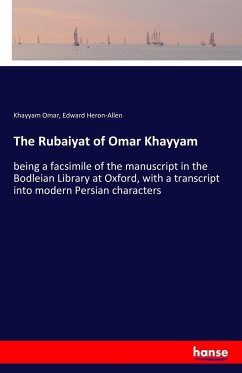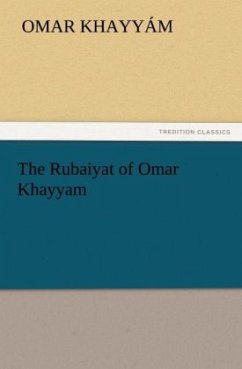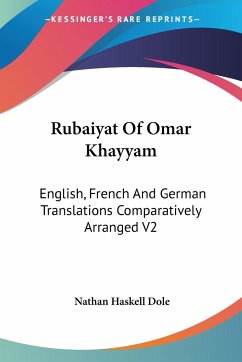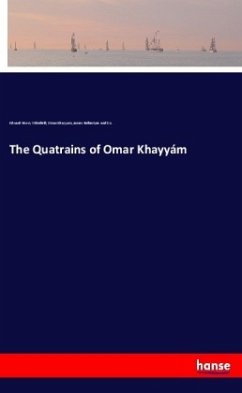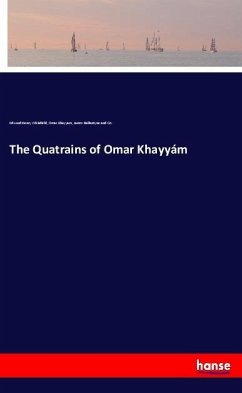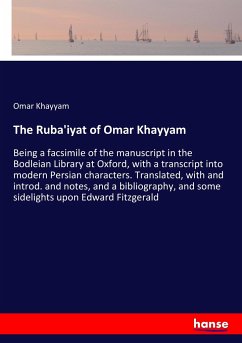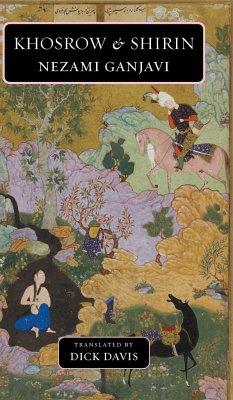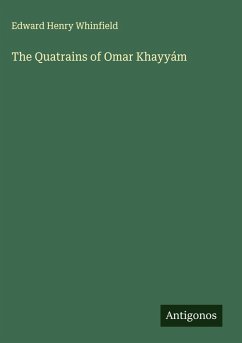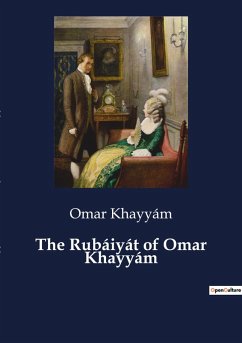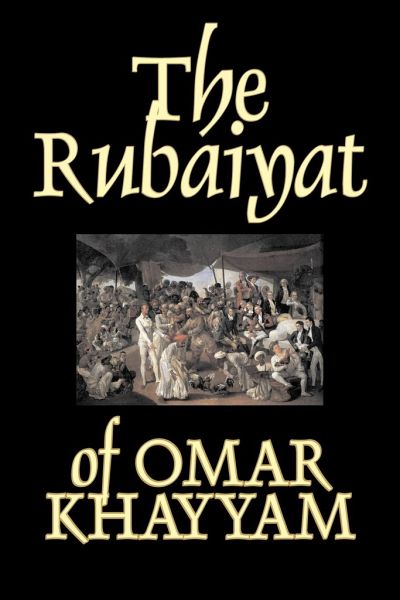
The Rubaiyat of Omar Khayyam, Fiction, Classics
Versandkostenfrei!
Versandfertig in 1-2 Wochen
13,99 €
inkl. MwSt.

PAYBACK Punkte
7 °P sammeln!
A ruba'i is a two-line stanza with two parts (or hemistichs) per line, hence the word rubáiyát (derived from the Arabic language root for "four"), meaning "quatrains". "A loaf of bread, a jug of wine, and thou . . ." is one of the most famous poetic lines ever written. One of the great achievements of poetry, The Rubaiyat of Omar Khayyam, was written in Persian in the 11th century. Omar Khayyam was a consummate philosopher and astronomer whose work extended far beyond the Rubaiyat, but it is this work that survives today, a testament to the power and grace of Islamic and Persian culture at t...
A ruba'i is a two-line stanza with two parts (or hemistichs) per line, hence the word rubáiyát (derived from the Arabic language root for "four"), meaning "quatrains". "A loaf of bread, a jug of wine, and thou . . ." is one of the most famous poetic lines ever written. One of the great achievements of poetry, The Rubaiyat of Omar Khayyam, was written in Persian in the 11th century. Omar Khayyam was a consummate philosopher and astronomer whose work extended far beyond the Rubaiyat, but it is this work that survives today, a testament to the power and grace of Islamic and Persian culture at this time. The Rubaiyat is one of the most lyrical poetic works ever composed and English-speaking readers know Khayyam's work through the translation of Edward Fitzgerald, which is presented here.





